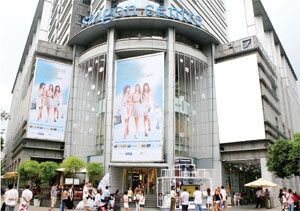Opening door to property
 Singaporean investors have a long standing history in Vietnam starting from the mid 90s. Vietnam opened its borders to encourage foreign direct investment (FDI) under the “doi moi” policy in the late 80s and this succeeded in attracting pioneering real estate developers.
Singaporean investors have a long standing history in Vietnam starting from the mid 90s. Vietnam opened its borders to encourage foreign direct investment (FDI) under the “doi moi” policy in the late 80s and this succeeded in attracting pioneering real estate developers.
Overcoming volatile peaks and troughs in the early years of the market, a number of Singaporean real estate developers established themselves into various sectors after almost 20 years, ranging from industrial, commercial to residential and hospitality properties.
To date, many prominent real estate projects have been developed by Singaporean developers such as Sembcorp, CapitaLand, Keppel Land, Mapletree and many others. These developers have since diversified from the initial sectors and segments of the market that they started in, but in general, they have proven to be successful.
This is attributed to a number of key strengths that they have inherently developed and possess.
First of all, Singaporean developers generally have a professional and systematic approach to new markets. This starts from getting a full understanding of the market, the basics of demand and supply and also the timing of the products.
Secondly, they possess many years of development expertise which has been built up by experience not only in Singapore, but also in other large and more established markets such as China and Malaysia.
Those years of expertise and knowledge have helped them develop a long-term vision of their business. That experience and expertise also allows them to invest across many sectors and cross segments, so that they are more flexible to adapt and react to market situations. This adaptive capability is essential to survive in bear markets and to capitalise on strong grow in a bull market.
Singaporean developers’ strengths are also the ability to get the right people to work under their corporate umbrella. Development work requires a lot of expertise in various disciplines.
Singaporean developers therefore usually have a strategic group of consultants, from lawyers, real estate consultants to architects and project management consultants. These groups usually comprise a good mix of local and international experts, so that they can get the professional service to ensure the delivery of quality products that last and continue to provide value to the end customers.
Singaporean developers and investors are able to utilise their financial capability, which is a critical requirement for the capital intensive real estate industry. They also benefit from a strong and stable currency, supportive cost of capital, easy accessibility to both local and international funds from Singapore as the financial hub of the region.
Last but not least, Singaporean businesses and real estate developers/investors have a strong support network from the Singaporean government. This helps to create business reputation and credentials so that they will be able to establish good relationships with local partners, which in turn has the potential to open up opportunities.
Within the context of the current market conditions, there will be opportunities to partner local developers and inject capital resources into many real estate projects to provide much needed liquidity.
These opportunities could be either joining in development projects as partners, majority or minority, or even acquiring 100 per cent of a development project from other developers.
In Vietnam’s real estate market, there are more investment class assets that are available. These are opportunities for investment funds/companies that are looking for manageable risk with potentially high growth of an emerging country like Vietnam. More investment from Singaporean real estate players is expected to tap into a wide range of opportunities.
What the stars mean:
★ Poor ★ ★ Promising ★★★ Good ★★★★ Very good ★★★★★ Exceptional
Related Contents
Latest News
More News
- An Phat 5 Industrial Park targets ESG-driven investors in Hai Phong (January 26, 2026 | 08:30)
- Decree opens incentives for green urban development (January 24, 2026 | 11:18)
- Public investment is reshaping real estate’s role in Vietnam (January 21, 2026 | 10:04)
- Ho Chi Minh City seeks investor to revive Binh Quoi–Thanh Da project (January 19, 2026 | 11:58)
- Sun Group launches construction of Rach Chiec sports complex (January 16, 2026 | 16:17)
- CEO Group breaks ground on first industrial park in Haiphong Free Trade Zone (January 15, 2026 | 15:47)
- BRIGHTPARK Entertainment Complex opens in Ninh Binh (January 12, 2026 | 14:27)
- Ho Chi Minh City's industrial parks top $5.3 billion investment in 2025 (January 06, 2026 | 08:38)
- Why Vietnam must build a global strategy for its construction industry (December 31, 2025 | 18:57)
- Housing operations must be effective (December 29, 2025 | 10:00)

 Tag:
Tag:




















 Mobile Version
Mobile Version